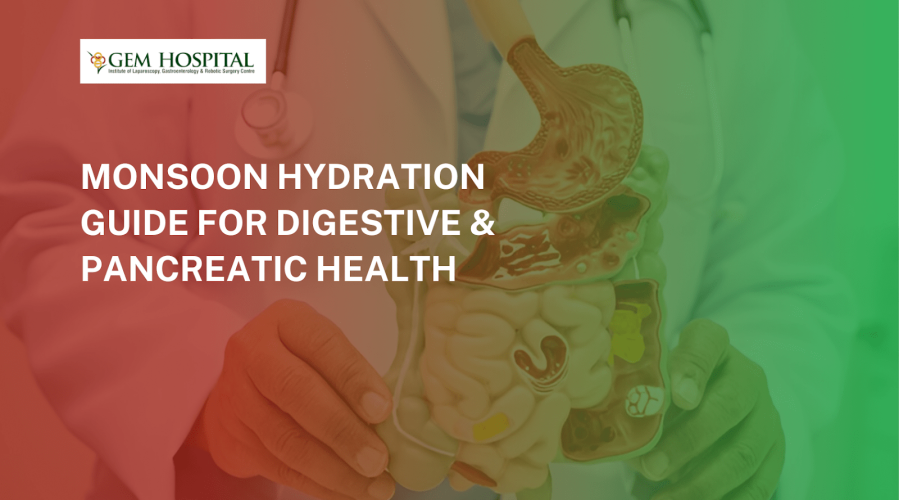Consult experienced hernia doctors in Chennai for expert surgical care. Advanced diagnosis, safe hernia surgery, and faster recovery with specialized treatment.
Monsoon Safety Tips for Patients with Weak Immunity Due to Cancer Treatment

A Complete Guide to Stay Healthy and Reduce Infection Risks
Cancer treatment takes a toll on the body, especially on the immune system. Treatments like chemotherapy, radiation therapy, and bone marrow transplants often weaken immunity, making patients more vulnerable to infections. As monsoon approaches, the humidity and waterborne diseases during this season can pose additional challenges for those undergoing cancer treatment.
This is why cancer treatment infection precautions become even more crucial during monsoon. With the damp environment, mosquitoes, and rise in bacteria and viruses, cancer patients must practice extra care to stay healthy and prevent avoidable infections.
In this blog, we’ll look at easy and practical monsoon safety tips for patients with low immunity due to cancer treatment.
1. Avoid Exposure to Stagnant Water
Stagnant water during monsoon becomes a breeding ground for mosquitoes, which can cause diseases like dengue, malaria, and chikungunya. These illnesses can be extremely dangerous for someone whose immune system is already compromised due to cancer treatment.
What to Do:
- Stay indoors during peak mosquito rush hours: dawn and dusk.
- Use mosquito repellents or nets.
- Wear long-sleeved clothes.
- Avoid walking near dirty water or puddles.
2. Food and Water Safety is a Must
Infections often enter the body through contaminated food or water. With the risk of cholera, typhoid, and gastroenteritis increasing during monsoon, patients must be extra cautious.
Follow These Tips:
- Drink only boiled or filtered water.
- Avoid street food and raw salads.
- Eat freshly cooked meals.
- Wash fruits and vegetables thoroughly before use.
- Keep a check on food hygiene when eating out or ordering food.
3. Keep Personal Hygiene in Check
Personal hygiene plays a huge role in preventing infections, especially for cancer patients. During their treatment, the body’s defense mechanism is weakened, so even minor infections may become severe.
Hygiene Checklist:
- Wash hands regularly with soap and water or use a sanitizer.
- Change clothes frequently if you get wet in the rain.
- Avoid sharing personal items like towels and razors.
- Keep nails trimmed and clean.
4. Protect Your Skin
Skin infections and fungal conditions are common during monsoon due to humidity. Cancer patients must pay special attention to skin care and avoid prolonged dampness.
Precautions:
- Use mild, doctor-recommended soaps and lotions.
- Keep skin dry, especially in folds (armpits, between fingers, groin area).
- Wear loose, breathable clothes.
- Apply antifungal powder if necessary.
- Avoid walking barefoot on wet floors.
5. Ensure a Clean Living Environment
Indoor cleanliness is just as important as outdoor protection. Moist walls, leaky ceilings, or fungus in the home can increase the risk of respiratory infections.
Tips for a Safe Environment:
- Avoid damp, closed rooms.
- Use dehumidifiers or humidity-absorbing products.
- Clean and disinfect frequently touched surfaces.
- Ensure cross ventilation.
6. Stay Updated with Vaccinations
Even if you are undergoing cancer treatment, certain vaccines may help prevent infections. Speak to your doctor about being vaccinated against common seasonal illnesses.
Why It Matters:
Vaccines are a part of smart cancer treatment infection precautions because they boost the body’s ability to fight specific diseases. Always take the vaccine only after consulting with your oncologist.
7. Avoid Crowded Places
During monsoon, flu and viral infections spread quickly in public spaces. Crowded places like malls, public transport, and markets must be avoided to reduce exposure to infectious germs.
Safety Measures:
- Prefer online delivery services.
- Wear a face mask in public.
- Maintain distance from visibly sick people.
- Use hand sanitizer after touching any public surfaces.
8. Keep Your Treatment Schedule Consistent
Don’t skip treatment sessions due to the weather. For cancer care to be effective, timing is critical. If you’re worried about stepping out during rain or floods, speak to your healthcare provider for alternate options like tele-consultations or scheduling adjustments.
9. Strengthen Nutrition and Immunity
While fear of infection may make you skip meals, this is the worst thing to do. Proper nutrition gives strength to fight diseases.
Include:
- Protein-rich foods (dal, eggs, paneer)
- Probiotics (curd, buttermilk)
- Fresh cooked vegetables
- Hydrating fluids like warm soups, coconut water
- Immunity-boosting foods like turmeric, ginger, and garlic
10. Stay Connected With Your Doctor
If you develop symptoms like fever, cough, rash, loose motion, vomiting, or severe fatigue, don’t delay. Consult your oncologist or healthcare team immediately. Early intervention can prevent complications.
Monsoon may bring relief from the heat, but for cancer patients, it is a season of heightened vigilance. Following these monsoon-specific cancer treatment infection precautions can significantly reduce the risk of serious infections and help maintain strength during ongoing treatment.
At Gem Hospital, we understand the unique challenges faced by cancer patients, especially during seasonal changes. Our expert oncology team ensures that every patient receives comprehensive care with a focus on both treatment and prevention.
Book an appointment today to ensure safe and mindful care for yourself or your loved ones during this monsoon season. Our team is always ready to guide you every step of the way.
Blogs & Article
Get advanced liver transplant treatment in Chennai with expert surgeons, modern technology, and comprehensive care for safe and successful outcomes.
Get advanced piles treatment in Erode with expert doctors. Safe procedures, modern technology, and effective care for fast relief and recovery.


